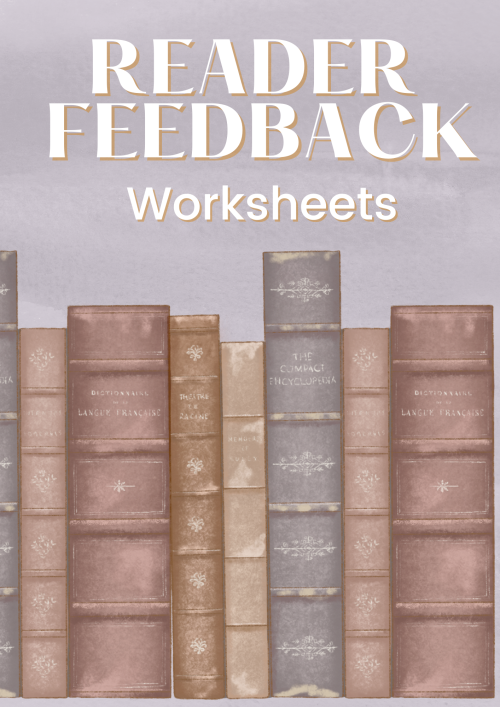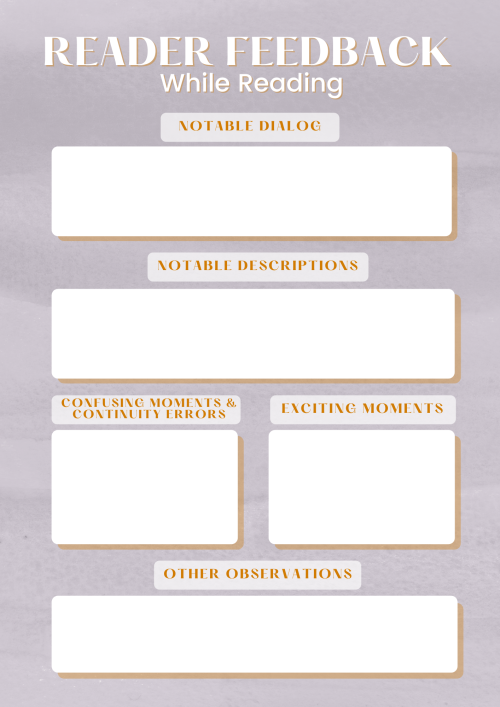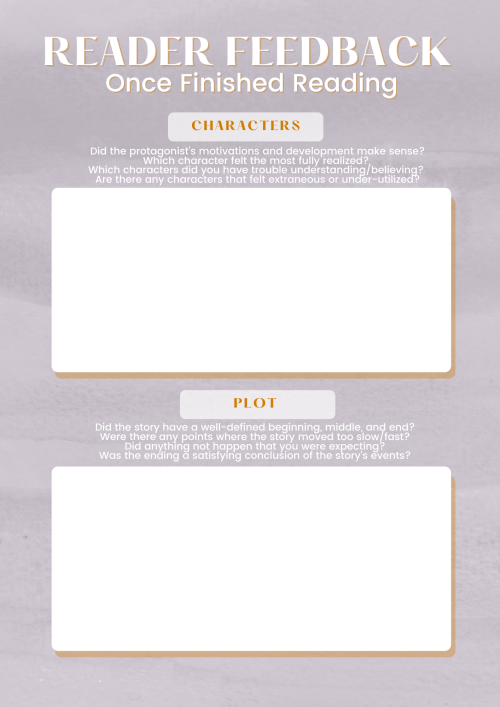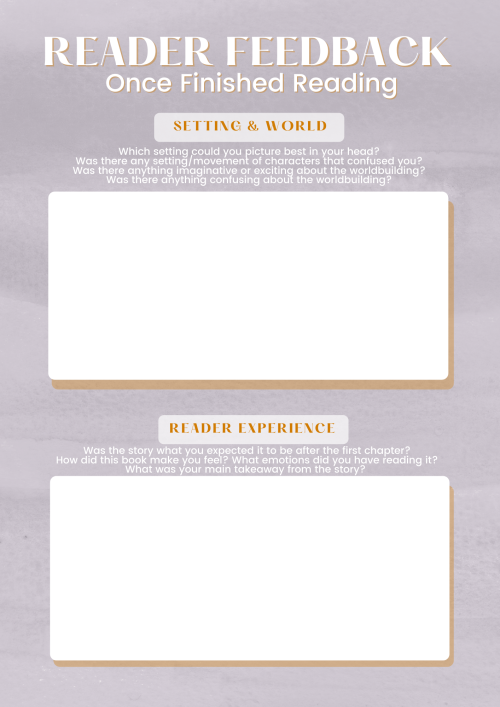#critiquing
Critique Partners:
Say: “These are all the things that subtract from the story you’re trying to tell and these are the ways I recommend fixing them if you want to reach your intended outcome.”
Must:Understand your personal writing style and your vision for the book, be at a similar writing skill level as you, and be able to communicate well with you in a constructive back and forth dialogue.
You should have: About 3 at any given time, though the number will vary though your writing carrier.
Your responsibilities: To respect their advice and give them the thorough, honest critique on their manuscripts in return.
Beta Readers:
Say: “This is what I understood while reading, this is why I came to that understanding, and this is what I think of it and how it made me feel.”
Must:Be a reader in (or near) the manuscript’s target audience, have the ability and desire to think deeply about a piece of writing, and convey those thoughts in a way that the author can make sense of.
You should have:7-15at the end of any given beta reading round. (The longer the story, the more likely it is that beta readers will drop out due to time constraints, personal life problems, or sheer forgetfulness.)
Your responsibilities: To keep track of their progress and encourage them to continue reading, to look for patterns or contradictions in their responses and decide what needs to be changed in order to receive the reactions you want from the majority of your readers in the future, and to ignore any advice you don’t firmly believe will make your book better.
Find out more about Beta ReadersandCritique Partners!
Sorry it’s been a while! A lot of things have been happening in my personal and professional lives (I’m getting married next month!)
As an apology, here are some Reader Feedback worksheets! These can be used when giving workshop of critique partner feedback, or even when trying to “read like a writer.”
These can be used to give to give straight to a writer who’s asked you for feedback, to give to non-writer friends when asking them for feedback, or to get basic ideas down before you write up a more thorough critique letter.
Reader Feedback
Observations to Keep Track of While Reading
Notable Dialog
Dialog that stands out to you while you are reading–good or bad
Notable Descriptions
Descriptions that stand out to you while you are reading–good or bad
Confusing Moments & Major Continuity Errors
Moments that give you pause while you’re reading, either because something about the plot or a character doesn’t make sense, or something in the writing directly contradicts an earlier event or description.
Exciting/Favorite Moments
Moments that make you eager to see what happens next, a particularly exciting or well-executed development in a character or plot, an extremely satisfying moment. Something that would make you revolt if the writer took it out in the next draft.
Other Observations
Anything else you want to take note of for the author. This may include things like chapter lengths or a consistent grammar error, or brilliant chapter titles.
Feedback Once Finished Reading
Characters
- Which character felt the most fully realized?
- Which characters did you have trouble understanding/believing?
- Are there any characters that felt extraneous or under-utilized?
- Did the protagonist’s motivation and developement make sense?
Plot
- Did the story have a well-defined beginning, middle, and end?
- Were there any points where the story moved too slow/fast?
- Did anything not happen that you were expecting?
- Was the ending a satisfying conclusion of the story’s events?
Setting & World
- Which setting could you picture best in your head?
- Was there any setting/movement of characters that confused you?
- Was there anything imaginative or exciting about the worldbuilding?
- Was there anything confusing about the worldbuilding?
Reader Experience
- Was the story what you expected it to be after the first chapter?
- How did this book make you feel?
- What emotions did you have reading it?
- What was your main takeaway from the story?
For more thorough advice on critiquing and giving writing feedback, make sure to check out my Writing Workshops: An Introduction post!
Post link




